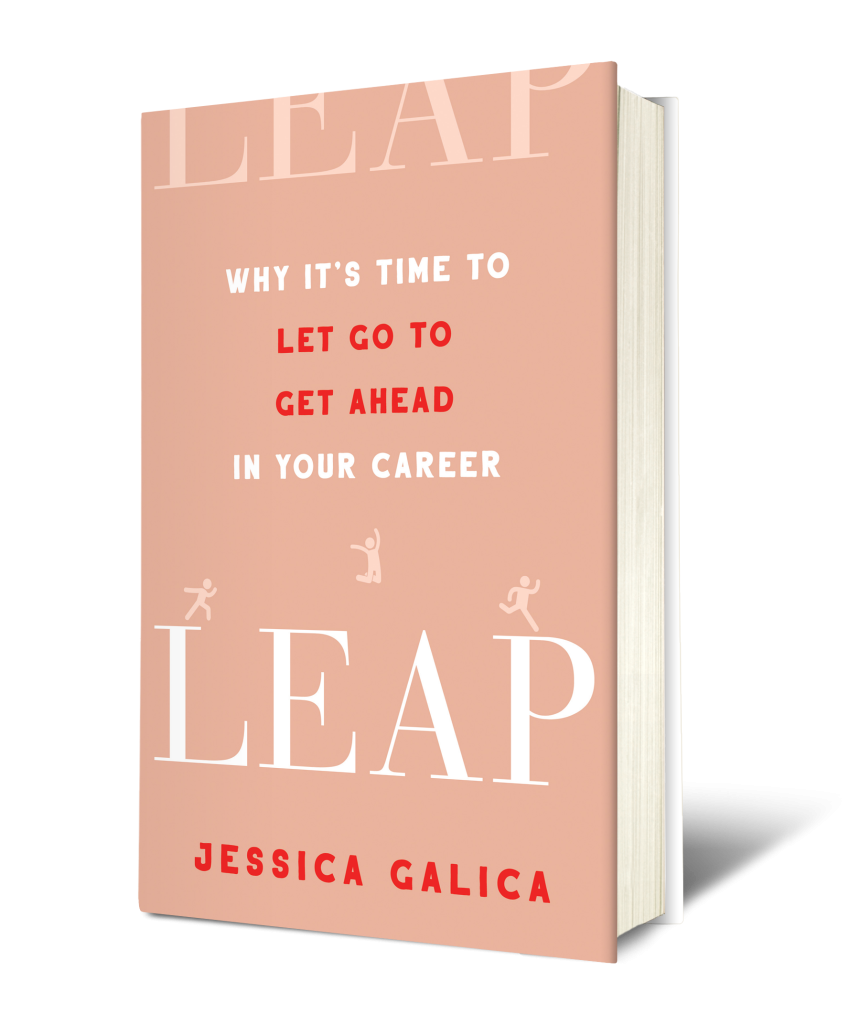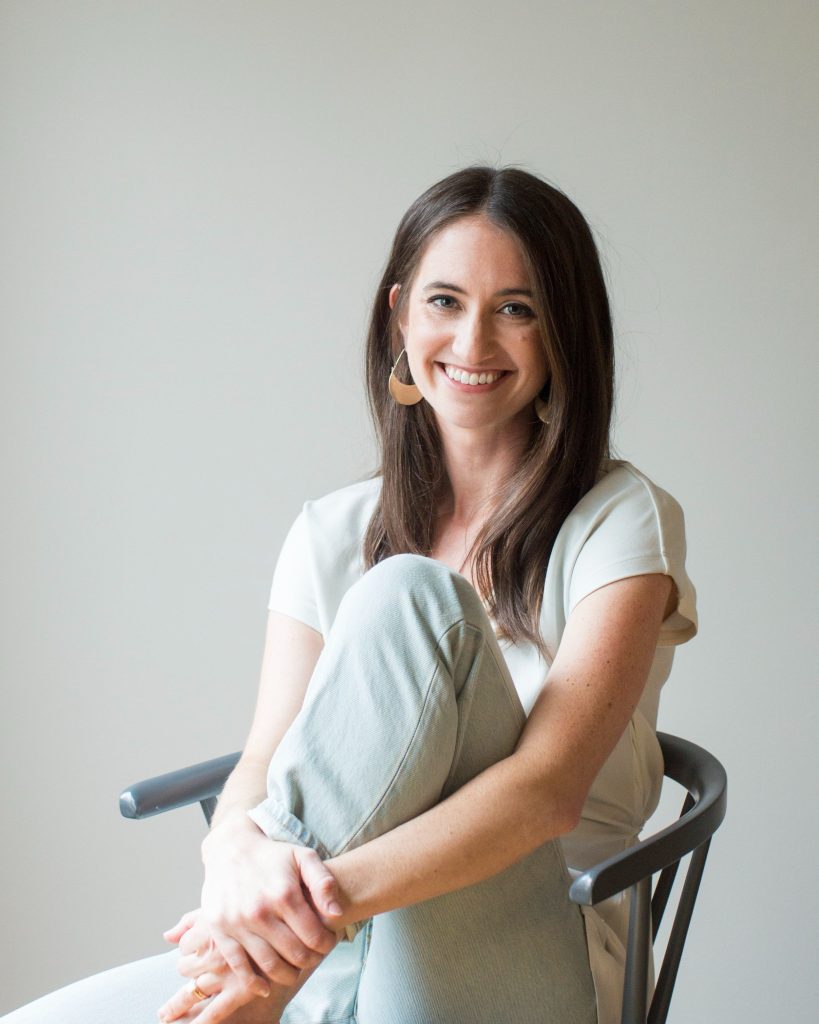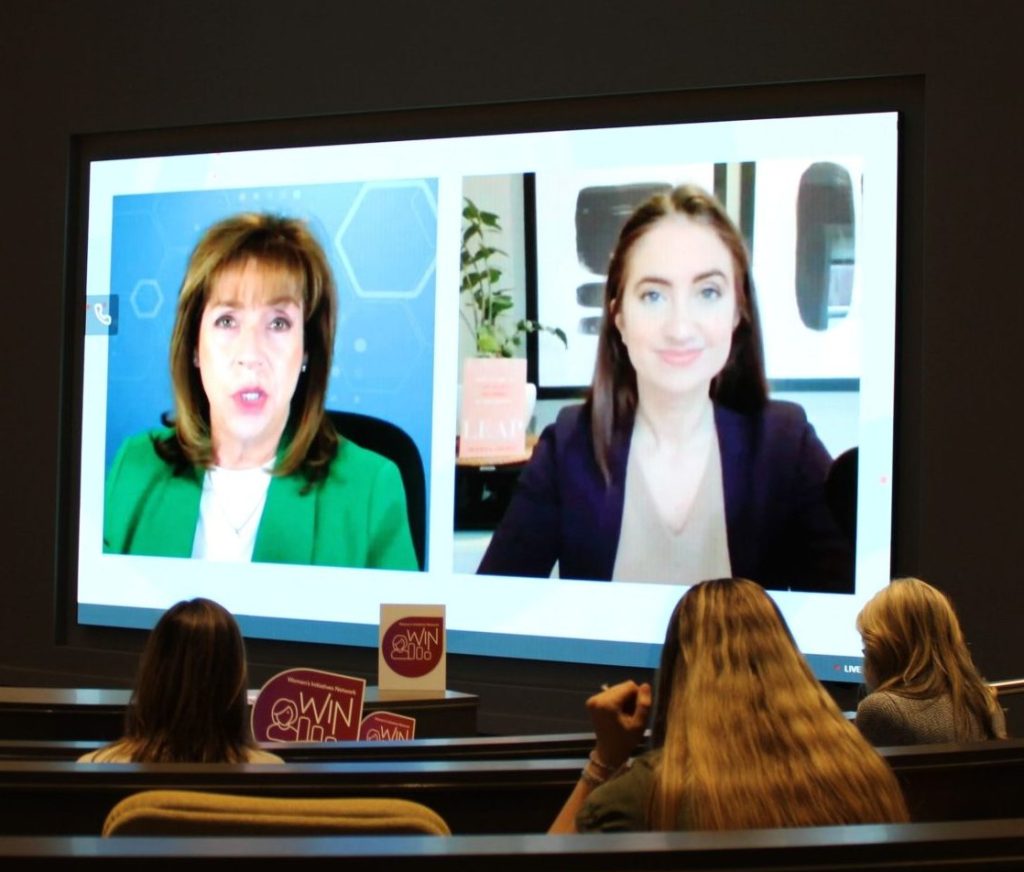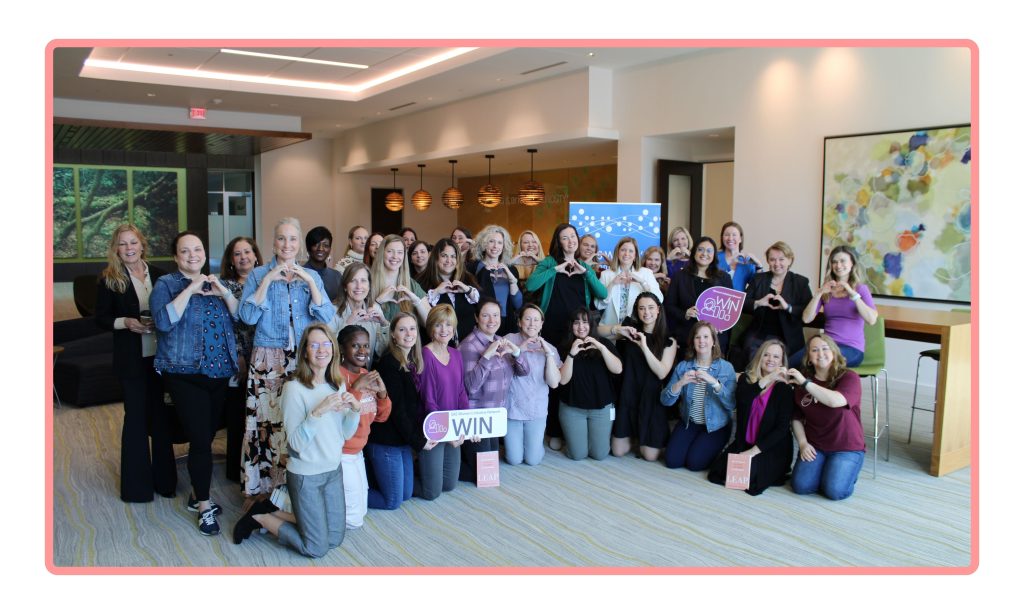Concerns about risk and the fear of change can be some of the biggest barriers to career development. Following the release of her book Leap: Why It’s Time to Let Go To Get Ahead in Your Career, author Jessica Galica invites you to reframe your view on risk.
Speaking for an International Women’s Day event at SAS, Galica argues that never taking a leap puts your career more at risk. Keep reading for her tips on how to become more fulfilled in your job and how to embrace your fears.
jjjjjjjjjjjjjjjjjjjjjjjjjjjjjjjjjjjjjjjjjjjjjjjjjjjjjjjjjjjjjjjjjjjjjjjjjjjjjjjjjjjjjjjjjjjjjjjjjjjj  jjjjjjjjjjjjjjjjjjjj
jjjjjjjjjjjjjjjjjjjj
Jessica Galica and her book, Leap
According to Galica, most women grew up being told, “Stay in your lane and you’ll be happy.” Trying to switch careers was assured to put you behind. However, this is a limiting strategy and doing the opposite may actually catapult you ahead.
Galica says, “Let go of this one, very prescribed notion of success and start to think of what success is in the context of you, and how you want that to shape your career decisions.”
Reflecting on her own struggles as a corporate woman, Galica explains how she went up the ranks at several large companies but still didn’t feel fulfilled in the way she had been led to believe. This is when she decided to define what success was to her.
Factors of fulfillment
The best career changes are moving towards something and not moving away from something, says Galica. She identifies two important signals to see if you’re ready to make a leap:
- You’ve stopped learning.
- You have stopped developing relationships at your job.
If either apply, the next step is to decide what you consider to be fulfilling. Consider the list of ways to seek fulfillment below.
Flexibility
For a lot of women, flexibility is a big factor in feeling fulfilled at work. Galica says 65% of people enjoy remote work and companies allowing remote working options are experiencing lower turnover rates overall. Galica says,
“Women want to work from home because of what it affords them. It affords them that flexibility of taking their kid or herself to a doctor’s appointment. It’s important for companies to understand that it’s not just about remote work, but about flexibility.”
However, she notes that if you are considering remote work, remember that not being in the office can lead to a lack of networking and personal branding that can end up hurting you in the long run. Galica says finding engaging work and networking activities online can help ensure that women continue to take on new challenges, ambitious opportunities and gain skills.
Expectations
Fulfillment may also look different to different generations of workers. Galica has found that the biggest difference generationally is expectations. She explains that many older women have worked in an environment where they were told that women were the issue, and each woman needed to take on the issue alone at the company. Younger generations are trying to push back on that and are changing the expectations that the company should be part of the solution, according to Galica.
Motherhood
Parenting is a piece of the fulfillment picture for many women.
“The biggest challenge is the burden of labor that women are taking on. Childcare is a massive responsibility and we know that, in most cases, women are taking on a disproportionate amount of that labor,” says Galica.
While there is a lot of advice for working parents, Galica says it should be very specific for each person’s life. There might be seasons of your career where you're leaning in more, and others where you’re leaning in less, and that’s okay. Your career is likely the biggest financial asset of your life, says Galica, and you should treat it as such. While childcare is wildly expensive, when thinking long-term, it typically pays off.

Baby steps are still steps
There is a misconception that a career change is a large, spontaneous change. In reality, change tends to be incremental, and it takes a long time. When doing research for her book, Galica found that she could fit most women into two categories:
- I know what I want to do, but how do I take action?
- I have no idea what I’m doing.
She gives the same advice for both groups: “Start small and take the baby steps.” Things like volunteering, taking on a project or joining inclusion groups are actions you can take today to slowly advance your career. Another way to start the journey is by proactively setting career goals. While common in a business context, it is rare for women to set goals to develop personal career growth. It’s easy to stay in your comfort zone, but getting out of that zone is when things change.
One way to start mapping out your goals is to make a list of people’s careers you admire, says Galica. Pick out patterns in what you like and don’t like. Afterward, do the same practice with job listings. These simple exercises can help you realize what you’re curious about and help you develop directional goals.
Seeing success
After interviewing more than 150 women for her book, Galica says one other favorite success stories is Melynda Barnes. Barnes had a career that many women would envy. She was a successful plastic surgeon and had broken the glass ceiling by being one of the few Black women in her field. However, Barns wasn’t fulfilled in her career and felt a calling to be an innovator. Quitting her job with nothing else lined up, Barns ended up joining a health care start-up company called Ro.
Today, Barnes is Chief Medical Officer on the company’s board and is providing medical care to many people through telemedicine. By taking the leap and holding the reigns to her career, Barnes found her place in the medical world.
Adapting is resilience
Galica ends by noting that change can be overwhelming. While it‘s easy to think of a thousand reasons not to change, it’s important to keep your eyes on what could be and what will happen if you fail to adapt. She emphasizes that technology is changing every day and if you’re not challenging yourself to be a lifelong learner, you may find yourself falling behind in the future.
“The biggest benefit is not the concrete change itself, but the resiliency that you’re building towards change that you’ll inevitably experience throughout your career,” Galica says.


